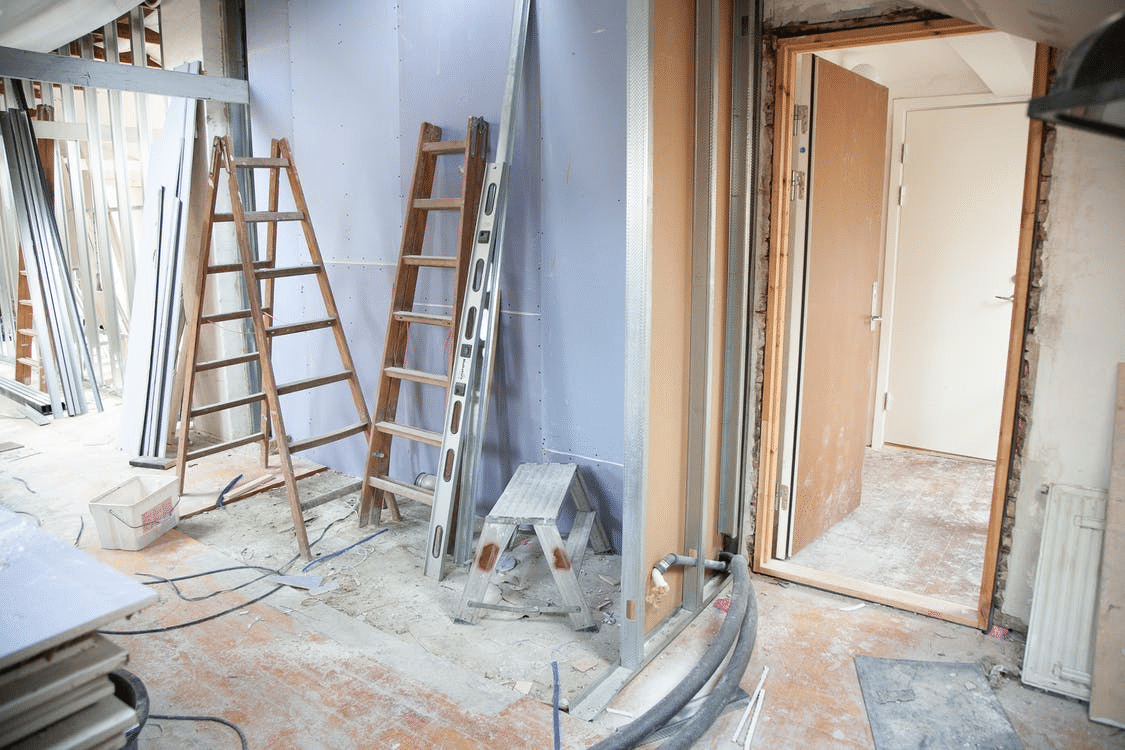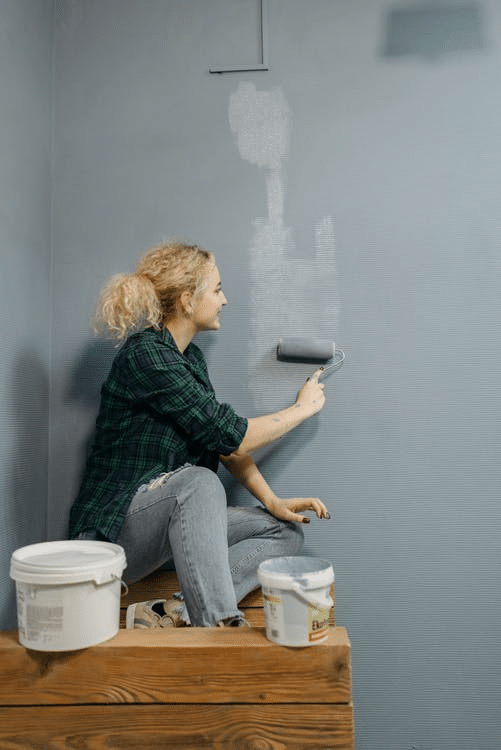What to Do if I Bought a Home With Unpermitted Improvements in Florida?
It might seem like it is not possible that you could end up buying a home that has had changes made to it without permits. This actually happens quite often in Florida and it can lead to lots of difficulties for the new owners who have taken possession of the property. Sometimes these difficulties are revealed in a pre-purchase inspection, but there can be home sales where there is no review of the items that should be up to code and these issues can slip by and be passed on to new owners.
If you have bought a home that has unpermitted improvements, you need to know what your options are if you are going to sell later or what needs to be done if you are trying to upgrade your home to meet code. You should also know about the options for pursuing legal recourse against the prior owners as well. Unpermitted changes can lead to expensive fines as well as the cost to pay for the permits that were not in place when the changes were made. There are many reasons that you might want to avoid this and you should be sure that you get legal support if you think that you will have to pursue the prior owner of a home for these costs.
A skilled St. Petersburg residential real estate lawyer can help you to figure out when unpermitted work was done to the home that you own and can help you to look back at permit documents that might be on file for the property. They can also help you get an inspector to look more closely at the property if you think that there might be other items that did not get noticed when you were first buying the home. The more that you know about the condition of the permits and other legal documents on file for your property, the better off you will be in the future. You do not want to sleep on something like this since it can negatively impact your use of the property later and your own ability to make changes to it in the future.
If you are ready to learn some more about what to do if you bought a home with unpermitted improvements in Florida, you need to keep reading!
What Counts as Unpermitted Work?

In most cases, the reason that unpermitted work turns up in an inspection or after you own the home is because the work was not done properly and it is causing issues. Even if the work has turned out to be correctly done and there are no issues with the improvement’s performance, this unpermitted work is still an issue if you need to make changes to your home or sell it. You might also have to put any projects that you want to do on hold until the permits that should have been done when the first changes were made have been paid for and put in place. This can be a cumbersome and time-consuming process, as well as an expensive task.
What Are the Consequences of Unpermitted Work?

If an inspector has come to your home to provide a pre-purchase inspection for a buyer, and they find out that unpermitted work was done to your home, you might be fined or penalized until the work is brought up to code. If there are a lot of issues with your home related to this kind of work, this could really add up for you in both time and money. Depending on the kinds of problems with the work that was done, this can become very expensive even without consideration for the fees and fines that you might be assessed.
Unpermitted work is more common in older homes and there are some instances where these kinds of changes can be hiding beneath layers of other work that has been done to your property. This can be the worst kind of sneaky surprise when you own an older home, and the unpermitted changes that have been done to your property might not make themselves known until a significant remodel or another kind of project is going on. You will likely not have anyone to go after if the home is very old and things were not brought up to code a few owners ago. It is often the case that someone with an older home that has had unpermitted changes done to it will have to just pay for the fixes that need to be done to bring the property up to code.
What Kinds of Changes Are Commonly Made Without a Permit?

It can be hard to find issues with wiring and plumbing without breaking into the walls to check on these parts of the home. This is why unpermitted changes can sometimes slip through the cracks, even when you have a skilled inspector look at your home before you buy it. Other common changes that can be done in Florida without a permit, are additions like pools and spas, or even covers for porches, patios, and sunrooms.
People are also prone to changing the use of garages and basements without permits and you should always check into the status of the permits that were put on file for this kind of conversion work. It is all too common for someone to buy a home in Florida that has a converted garage or basement space only to find out that there was never a permit put on file for this work. You should make certain that these permits have been placed for the work that was done before you buy any property that has a converted space since this can so negatively impact you as the owner later on. These conversions can have a major impact on the value of the home or the sale of the home, and if you find out that the work is not up to code, the cost to fix this issue can be hugely expensive.
Permits are not that expensive, but many people are not willing to pay for these permits on top of an expensive remodel. This is why this happens so often but it really can create lots of chaos later on. This is never the recommended procedure to take when an improvement needs to be made to a property and you will want to keep this in mind as well in the future if you think that you would like to just skip paying for permits for an improvement.
Not only will you potentially make a sale of your property much more difficult, but you will also be making an unfair mess for people that might buy your home later. And you could be pursued for the cost of the permits that were not placed after you have moved out of the home and thought that your sale was final. Permits are done to prevent improper and unsafe work from being done on properties and this is a worthwhile process to undertake for any change that you want to effect on your property.
Many people believe that they will live in their current home “forever” so they don’t think a permit will be needed. This is still not legal and no one should consider a permit for the remodel that you are doing on your own an optional item. This does not stop people from wanting to skip the line and just start remodeling right off without permits, but there is never any excuse for skipping this important part of the approval process before doing a remodel or alteration to a property.
In some cases, these unpermitted changes are done to just get the home sold and out of a current owner’s hands right away. This can also be done to keep the real estate value quite low and save money on property taxes. All of these various ways of trying to get around paying for permits are problematic later on. No matter if someone has done unpermitted changes to their home due to an error in understanding or to be sneaky, the consequences of these actions will be felt when the home needs to be sold or maybe even when someone inherits the home.
Can I Check on Permits on My Own?
Many permits are easily searchable online. This is a matter of public record and you should be able to check on permitted work that has been done on a property with a simple search online. This can help you to see if there are permits in place for work that you think might have been done on a home, or you could check on what the current owner has said about the permits they had in place for changes that were made to the property.
HOAs and other associations that care for neighborhoods might also have this information on file. This can be a good course of action to take when you are shopping for homes. This might save you some time and frustration down the road or you might be able to compel the current owner to make things right before you buy because you have been able to verify there are no permits on file for work done on the home.
If you still think that there should be permits on file for a home that you are involved in buying, you should secure a lawyer to help you with a more advanced property search. You can also get help from your lawyer with the process of getting permits and changes done to work that is holding back a sale. This is also a good idea if you have already bought the home and you suddenly have a suspicion that something was not taken care of properly before you bought the home.
It is always worth getting the right permits in place and the right changes made to bring something up to code before you progress with any of your own work on your home. Even if you have no plans to make alterations to your home in the near future, if you think there might be an issue with the permits that are in place, you need to take care of this right away.
Can I Take Legal Action Against the Prior Homeowner?

In some cases, just bringing up that you can take legal action about the unpermitted changes will motivate the former owner to give you the money that is needed to cover the permits that were not filed and the changes to the work that was done to satisfy code. You will usually need to be able to prove that the changes were done prior to the sale of the home, and if you cannot, this can lead to pushback from the former owner.
Some homebuyers prefer to handle this by including language in the sales contract that specifies that the owner of the home must address unpermitted work, including permits before a final occupancy inspection is done. Closing will be held in this case until the work has been done and the permits have been put in place. This can be the best way to prevent this kind of issue in Florida where unpermitted work to homes is so common.
Work With a Skilled Residential Real Estate Lawyer For Unpermitted Improvements

St. Petersburg Residential Real Estate Attorney, Sean Lopez
If you have found yourself in a situation where you own a home that has been given unpermitted improvements in Florida, you need to work with a skilled lawyer to seek compensation for the cost of the permits that were never put into place. If your home needs further work to bring these improvements up to code, your lawyer will be able to help you to get compensation for this need as well. There are many reasons that securing legal support in this kind of situation is a good idea, and if you are trying to sell your home or make other changes to it, this might be a mandatory process. Without the financial support of the person who should have paid for the permits in the first place, you might not be able to afford to get your home back to code or to get the right permits in place.
Getting the skilled help of a lawyer will make it much more likely that you will get a response from the former homeowner and that you will not be left holding the bag for the cost of improvements that you did not do. Make sure as well that you consider always having a home inspected before you buy. This will make it much less likely that unpermitted changes to the home in question will be missed and become your problem later.
See also:
Contractor Negligence in Florida
Construction Defect Claims in Florida
Hurricane Damage Claims in Florida
